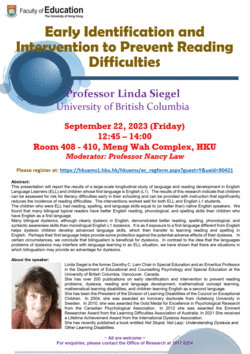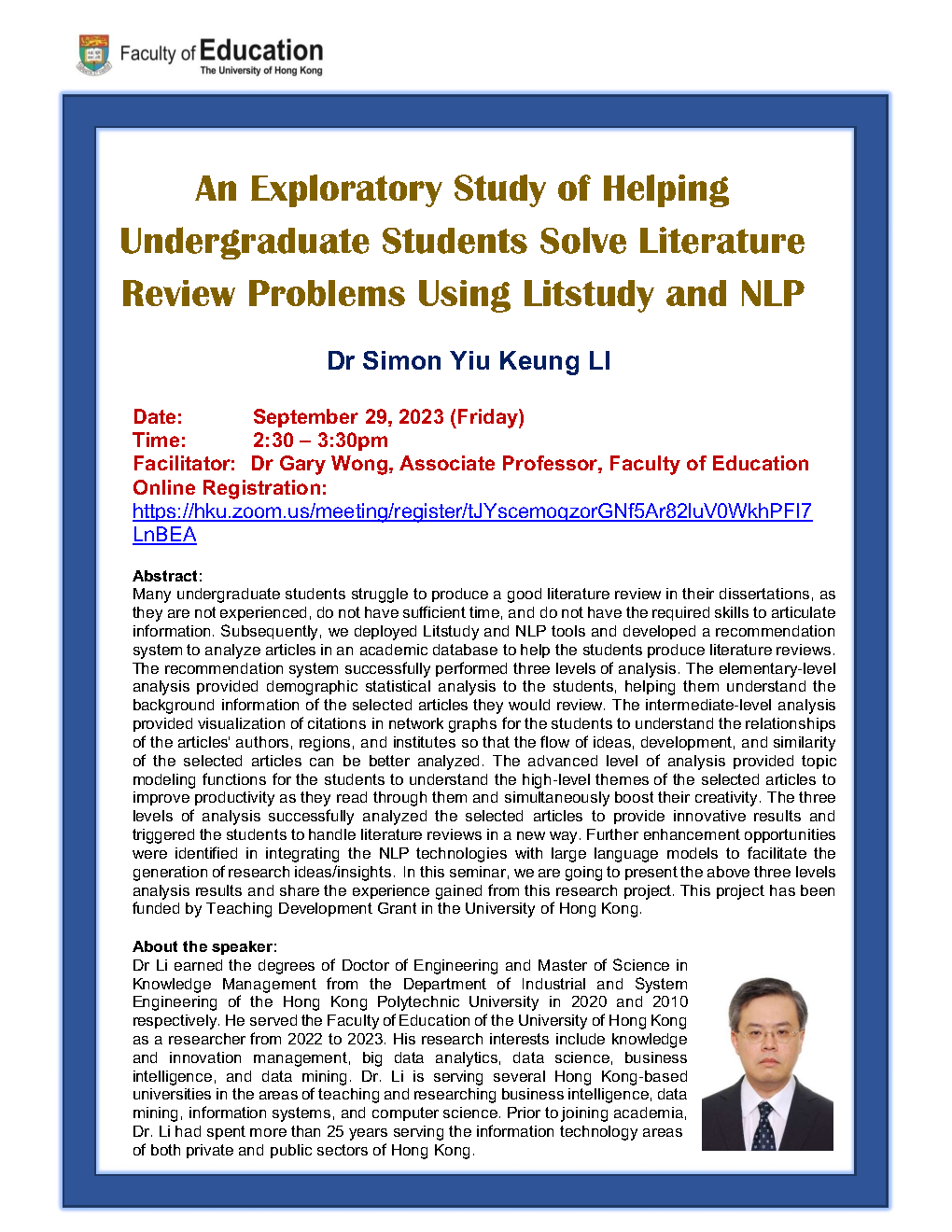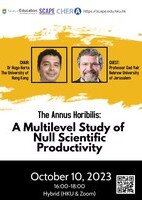Seminar: Early Identification and Intervention to Prevent Reading Difficulties
Seminar
Date
September 22, 2023 (Fri)
Venue
Time
12:45 PM - 2:00 PM
Speaker

Early Identification and Intervention to Prevent Reading Difficulties
Professor Linda Siegel
University of British Columbia
September 22, 2023 (Friday)
12:45 – 14:00
Room 408 - 410, Meng Wah Complex, HKU
Moderator: Professor Nancy Law
Abstract:
This presentation will report the results of a large-scale longitudinal study of language and reading development in English Language Learners (ELL) and children whose first language is English (L1). The results of this research indicate that children can be assessed for risk for literacy difficulties early in their schooling and can be provided with instruction that significantly reduces the incidence of reading difficulties. The interventions worked well for both ELL and English L1 students.
The children who were ELL had reading, spelling, and language skills equal to (or better than) native English speakers. We found that many bilingual typical readers have better English reading, phonological, and spelling skills than children who have English as a first language.
Many bilingual dyslexics, although clearly dyslexic in English, demonstrated better reading, spelling, phonological, and syntactic awareness skills than monolingual English L1 dyslexics. It is as if exposure to a first language different from English helps dyslexic children develop advanced language skills, which then transfer to learning reading and spelling in English. Perhaps their first language helps provide some protection against the potential adverse effects of their dyslexia. In certain circumstances, we conclude that bilingualism is beneficial for dyslexics. In contrast to the idea that the languages problems of dyslexics may interfere with language learning in an ELL situation, we have shown that there are situations in which bilingualism may provide an advantage for dyslexics.
About the speaker:
Linda Siegel is the former Dorothy C. Lam Chair in Special Education and an Emeritus Professor in the Department of Educational and Counselling Psychology and Special Education at the University of British Columbia, Vancouver, Canada.
She has over 200 publications on early identification and intervention to prevent reading problems, dyslexia, reading and language development, mathematical concept learning, mathematical learning disabilities, and children learning English as a second language.
She has been the President of the Division of Learning Disabilities of the Council on Exceptional Children. In 2004, she was awarded an honorary doctorate from Goteborg University in Sweden. In 2010, she was awarded the Gold Medal for Excellence in Psychological Research from the Canadian Psychological Association. In 2012 she was awarded the Eminent Researcher Award from the Learning Difficulties Association of Australia. In 2021 She received a Lifetime Achievement Award from the International Dyslexia Association.
She has recently published a book entitled Not Stupid, Not Lazy: Understanding Dyslexia and Other Learning Disabilities.
~ All are welcome ~
For enquiries, please contact the Office of Research at 3917 8254



